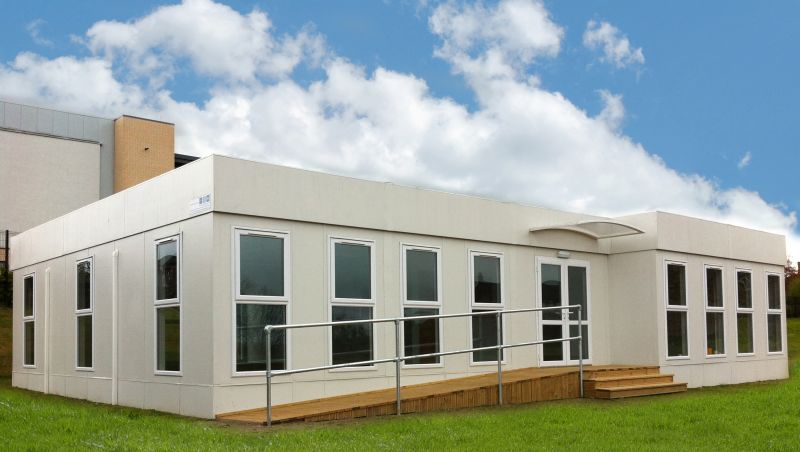Modular construction is the process of building units off-site, using the same materials, codes, and standards as conventional construction methods but with minimum disruption and time. Both big and small, prefabricated buildings can offer various benefits over traditional construction, including improved quality, reduced build times, and cost-effectiveness.
Modular building isn’t a new concept but enhancements and changes in these units are continuously embracing the way how construction projects are carried and executed. Especially amid the COVID-19 pandemic, the demand for portable modular buildings has encouraged to increase space for social distancing, creating shorter construction times, sustainable building practices, and more efficient processes.
The Advanced Modular Construction Approach
Modular components are prefabricated in off-site production facilities for the rapid assembly of units. Due to rising costs of traditional construction methods, shortage of skilled labor, and affordable housing, modular construction is considered an excellent strategy for addressing such issues. It has the ability to meet ever-changing sustainability goals that conventional construction methods cannot fulfill. Significant benefits of modular construction include:
- Reduced material waste
- Reduces interruption to the building site and nearby community
- Safe and efficient working conditions
- Reduced operational energy
What is Exactly Off-Site Modular Construction?
Off-site modular construction is the process of planning, designing, manufacturing, transporting, and assembling components for site assembly to a higher level of finish. Be it permanent or temporary, structural units are constructed off-site and then assembled on-site, which reduces disruption and overhead expenses. Factory production of modules eliminates the complexities of unpredictable weather and unnecessary delays linked with on-site construction.
How Off-Site Construction Reduces Production Time?
There are a plethora of benefits of modular buildings, such as reducing costs and material waste, minimizing carbon footprints, and improved flexibility. Modular construction processes are significantly fast than traditional construction and can reduce production time due to many reasons.
- Simplified construction process – Modular buildings can be fabricated at the same time as the work takes place on-site.
- Construction is carried out in a climate-controlled environment that avoids weather-related delays.
- The planning and building standards of modular construction are much lenient than traditional buildings, which means less time consumption in planning.
- Assembly line installation minimizes downtime as compared to the continuous movement of trades to numerous installation sites for the on-site project.
- With the increase in speed, overall costs can be decreased, making off-site methods cost-effective.
Portable Modular Building – Bringing Innovation in the Construction Sector
The Modular and Portable Building Association (MPBA) is encouraging members throughout all sectors to innovate and enhance technological advancements, in general, to revolutionize the house building area. Thousands of modular buildings are constructed and further, the government promotes off-site modular construction practices to increase efficiency and minimize production time. The extensive scope of customization allows designs to fulfill faster production processes.
Conclusion:
Off-site modular construction can serve plenty of building projects, including education, housing, commercial, healthcare, retail, hospitality, and government. It is a perfect solution to control project schedules and costs while increasing quality, reduce environmental impact, and overall production time. sprunki horror Endless Fun Awaits!



